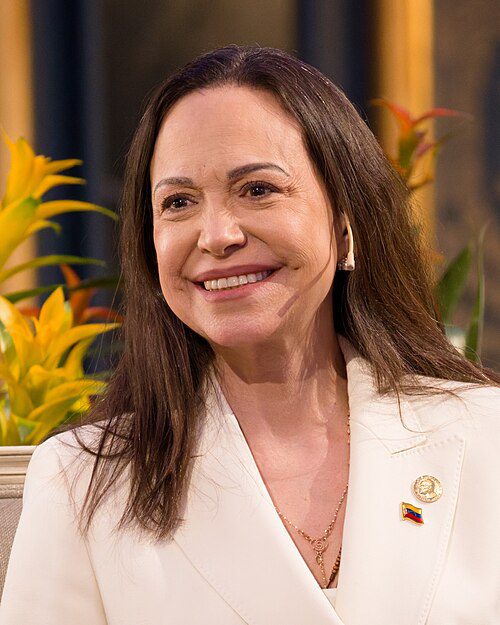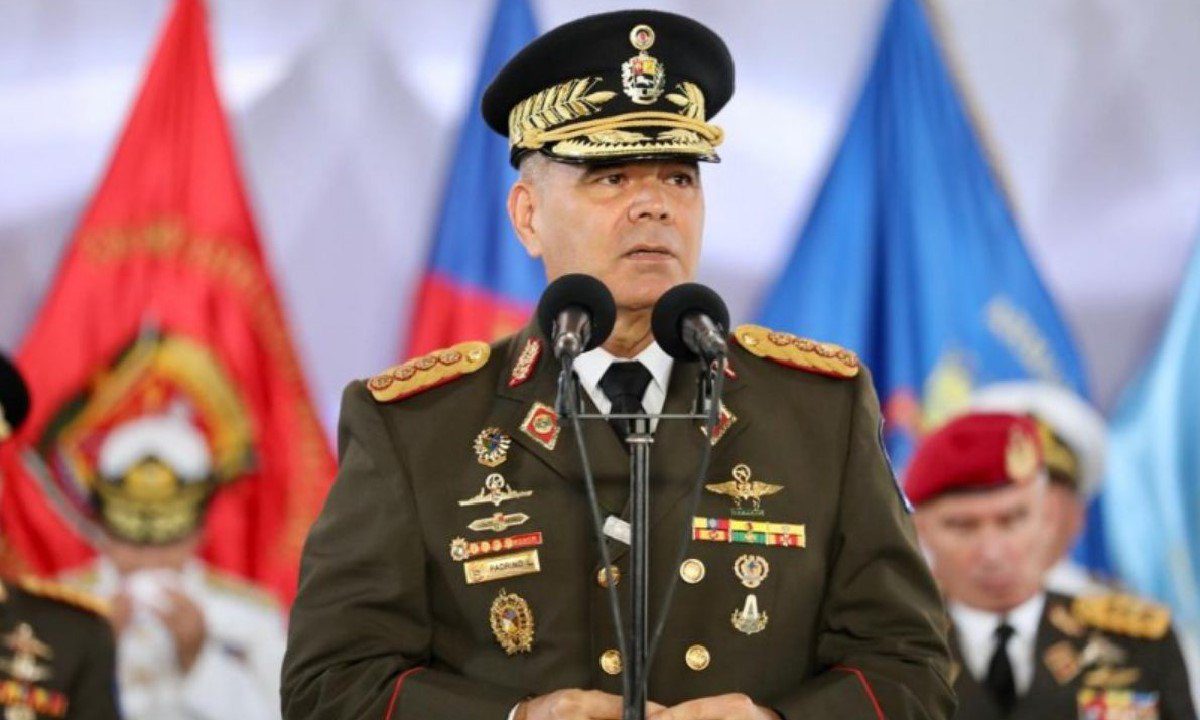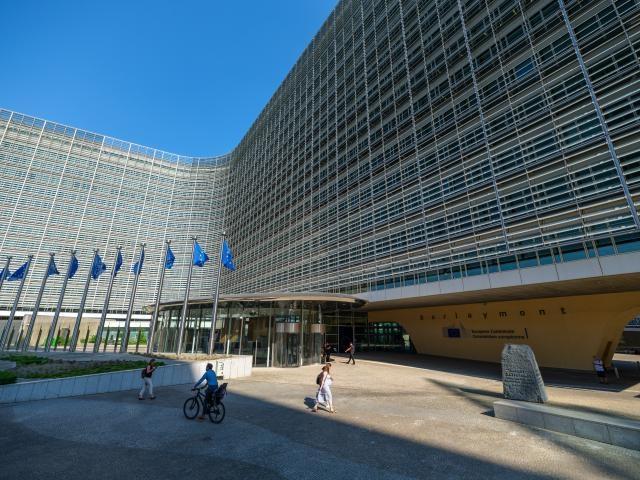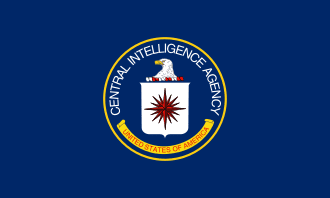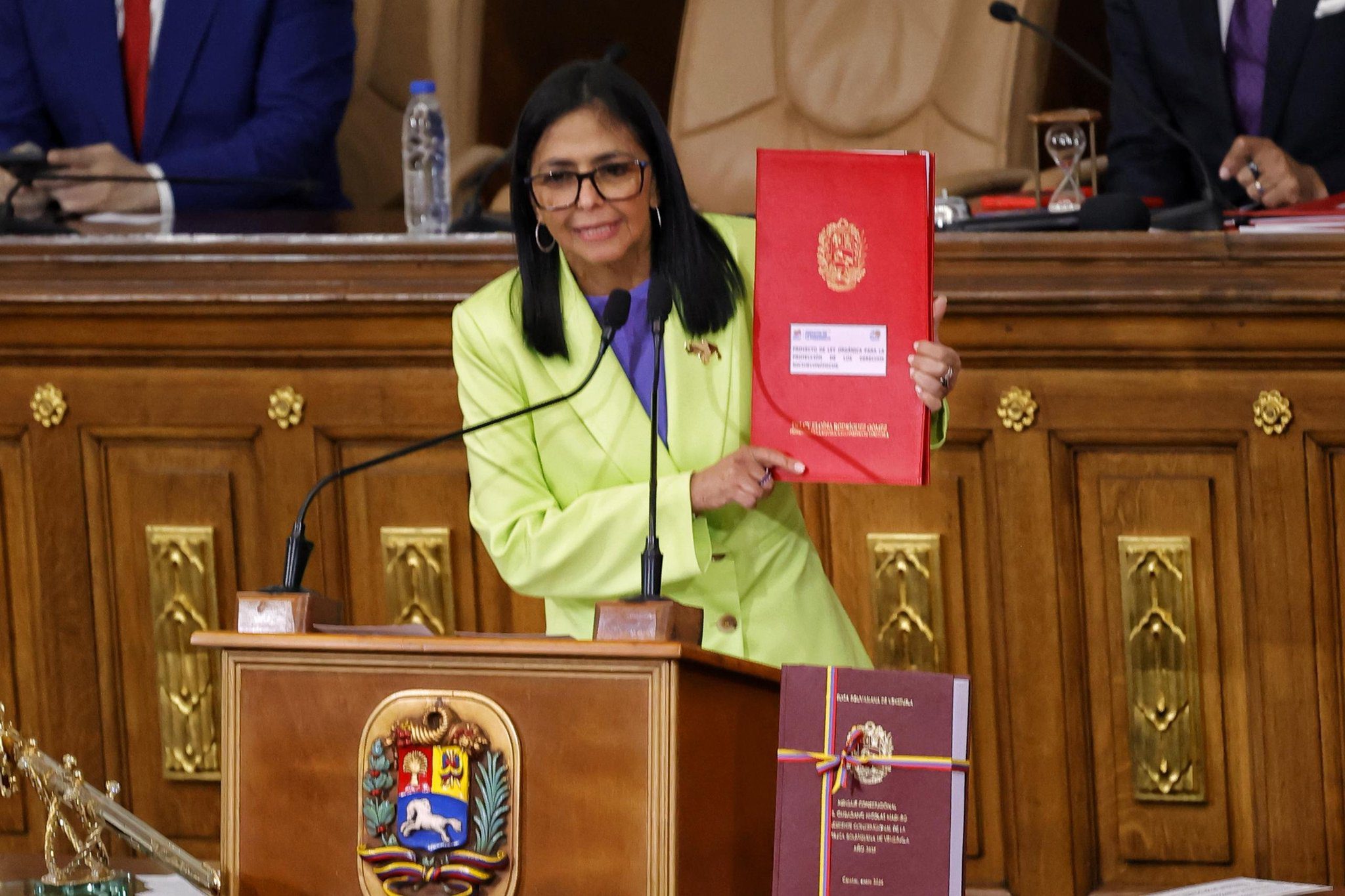Nicolás Maduro holds the Law of the Command for the Integral Defense in his hands as he speaks on television from the Sol del Perú Hall in the Miraflores Palace. Photograph: Presidential Press.
Guacamaya,November 14, 2025 . The National Assembly approved the Comprehensive National Defense Command Law on November 11, a central instrument of Venezuela’s new military doctrine that expands the shared responsibility between the State, the Armed Forces, and the citizenry in the country’s defense. The enactment occurs in a climate of regional tension marked by the deployment of the US aircraft carrier USS Gerald Ford in the Caribbean and the initiation of “Operation Southern Lance,” announced by Washington. The regulation has generated official support and strong criticism from opposition sectors who consider it an instrument of internal control.
Venezuela strengthens the “army-people” doctrine
The National Assembly(AN) of Venezuela approved, this Tuesday, November 11, the Comprehensive National Defense Command Law, a key legal instrument for the country’s new military doctrine that establishes the shared responsibility of the State and all Venezuelans in the defense of the nation against internal and external threats.
The second discussion of the bill, which concluded this Tuesday, focused on defining the bases of a strategy centered on the idea of an “army-people” and “people-army,” as conceived by Hugo Chávez and developed by President Nicolás Maduro.
The president of the AN, Jorge Rodríguez, emphasized the importance of approving this law, which is structured into three titles and 35 articles. Rodríguez highlighted that the instrument legitimizes a new operational framework for obeying orders, troop movement, and the essential conjunction between the Bolivarian National Armed Forces (FANB) and the Venezuelan people.
This legal structure guarantees a comprehensive defense that transcends the exclusively military sphere, extending to the social, economic, and internal order spheres. Its main objective is to consolidate peace, strengthen democracy, and ensure the integrity of the nation.
Executive powers and operational structure
The passage of the law included the approval of core articles. Article 16 establishes that the President of the Republic, in his role as Commander-in-Chief of the FANB, will be responsible for ordering the formation, supervision, and control of the comprehensive defense leadership bodies at the different territorial levels.
Article 17 defined the operational structure of these bodies, which will be composed of essential Work Committees for technical support and the execution of plans. Five specific committees were established:
· Bolivarian Patriotic Committee
· Economic, Productive, and Services Committee
· Social Popular Committee
· Internal Order Committee
· Mobilization and Requisition Committee
The bill, presented to the AN on the initiative of President Nicolás Maduro and the Minister of Defense, G/J Vladimir Padrino López, had been unanimously approved in a first discussion last October 10, under the name Special Bill for the Leadership Bodies for the Comprehensive Defense of Venezuela.
Before the final vote,the plenary session also served as the stage for the reading of a recent statement issued by the State Duma of the Russian Federation, which condemned threats of the use of force and its application against Venezuela, reaffirming the principle of non-interference and advocating for the maintenance of Latin America and the Caribbean as a Zone of Peace.
In the same vein, the National Assembly responded with gratitude and a message of solidarity directed to the Russian people and Government, headed by Vladimir Putin. Jorge Rodríguez emphasized that Russian support in “complex and difficult moments” is proof that Russia is a “true friend” of the people of Venezuela.
Maduro activates the Comprehensive Defense Commands
Since the early hours of this Wednesday,Nicolás Maduro ordered the activation of all Comprehensive Defense Commands, instances that bring together public institutions, the Bolivarian National Armed Forces, and Popular Power. The main objective is to strengthen defense capabilities and internal cohesion in the face of possible confrontation scenarios, in response to the presence of the aircraft carrier Gerald Ford in the Caribbean.
The measure is backed by the enactment of the Law, which Maduro received this Tuesday in the Sol del Perú room of the Miraflores Palace from the hands of the President of the National Assembly. The head of state stated that it will be implemented “at three levels of government: national, state, and municipal.”
In that context, Maduro declared:
“If it were to befall us as a Republic, as a people, to go into armed struggle to defend this sacred inheritance of the liberators, we will be ready to win and to triumph through the path of patriotism and bravery.”
The president linked this position to external threats, particularly the US operation in the Caribbean, questioned by several european countries like France, Latin American nations, and the UN.
The president of the National Assembly,Jorge Rodríguez, stated that the law is based “on the new military doctrine bequeathed to us by Commander Chávez,” and added that Maduro “has developed and enriched it.”
The regulation establishes an organizational and operational structure for the Comprehensive Defense Commands, directly attached to the Strategic Operational Command (CEOFANB). It includes their formation, the presence of a general coordinator, and functions oriented both towards national defense and the sustenance of productive activity and public services.
Article 9 indicates that the training of the members will also be under the responsibility of the CEOFANB, to ensure that the training responds to the operational guidelines of the FANB.
Article 13 orders the appointment of a general coordinator responsible for leading, organizing, and supervising the activities of the commands.
Article 15 establishes functions such as supporting military operations as required by the competent authorities and ensuring the continuity of productive activities and public services.
The approved Law contains 22 articles, two transitory provisions, and one final provision, which has not yet been published.
The regulation also contemplates work committees and the creation of a “situational room” to collect, analyze, and interpret strategic information in each territorial area.
These measures add to the Government’s call to enlist in the Bolivarian Militia, given the increase in tensions with the United States, which has carried out attacks against vessels in the Caribbean under the argument of anti-drug operations.
The Minister of Defense,Vladimir Padrino López, stated that the new law “marks a milestone in the construction of the doctrine,” noting that it is a body attached to the CEOFANB with functions of integration, planning, coordination, and control of the comprehensive defense organs.
He explained that these are collegiate instances that articulate public power and popular power in the territory. “This strengthens the law; that grand strategy created by our commander-in-chief, President Nicolás Maduro, in the popular-military-police fusion.”
He affirmed that everything is done under the principle of shared responsibility, enshrined in the Constitution.
Opposition reactions: concern over internal control and constitutional risks
Strong criticism came from the opposition. Elected deputy Stalin González, representative of the Unión Nuevo Tiempo – Unión y Cambio alliance, wrote on X:
“Our Constitution, which is the most sacred thing we Venezuelans have, is very clear and establishes that no one is above the law. The mission of the Armed Forces is to protect the sovereignty and dignity of the Venezuelan people against any threat, internal or external. Even so, the new Comprehensive National Defense Command Law grants the Executive unlimited power, based on an ambiguous text that leaves everything to its interpretation. In the name of national defense, this law risks becoming an instrument of persecution, internal control, and repression, weakening constitutional guarantees and increasing the existing climate of fear. It also increases uncertainty, as it does not specify whether participation in this ‘Command’ is voluntary or obligatory. The Constitution establishes in its article 134 that ‘no one can be subjected to forced recruitment.'”
For his part, former presidential candidate and also elected deputy for the National Assembly whose term begins in 2026, Henrique Capriles, addressed the FANB with a direct message:
“From a democratic perspective, what do the military think? What will happen with this aircraft carrier in the waters of the Caribbean? Are we going to a confrontation to defend the government? Does Maduro intend for Venezuelans to sacrifice themselves to defend him?”
Washington announces “Operation Southern Lance”
In parallel,the US Secretary of War, Pete Hegseth, posted on his X account:
“President Trump ordered action, and the Department of War is delivering. Today I announce Operation SOUTHERN LANCE. Led by the Joint Task Force Southern Spear and@SOUTHCOM, this mission defends our homeland, drives narcoterrorists from our hemisphere, and protects our homeland from the drugs that are killing our people. The Western Hemisphere is America’s neighborhood, and we will protect it.”
According to a Reuters/Ipsos poll, only 29% of Americans support using the military to kill alleged drug traffickers without judicial involvement, a figure interpreted as public criticism of the attacks promoted by the Trump administration in the Caribbean and eastern Pacific.
With the enactment of the Comprehensive Defense Command Law and the increasingly tense regional climate, Venezuela is entering a phase of high military and political mobilization, while the discursive confrontation between Caracas and Washington intensifies and the internal opposition warns of the risks to the constitutional order.


